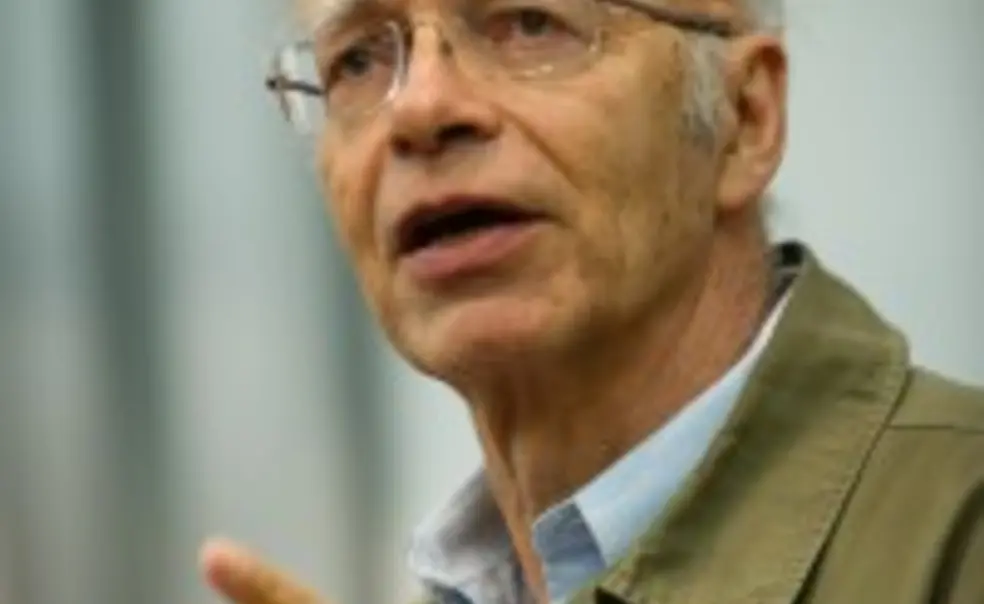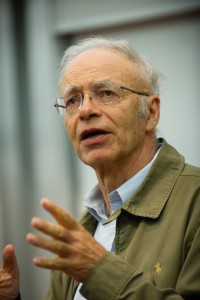Bioethicist Peter Singer Explains Why You Should Make Donations That Save Lives — And Forgo Supporting Arts Groups
To some, an ethical life and a career on Wall Street may seem paradoxical. But in his new book, The Most Good You Can Do: How Effective Altruism is Changing Ideas About Living Ethically, Professor Peter Singer tells the story of Matt Wage ’12, a philosophy major who abandoned his plans to study at Oxford to take a job at a Wall Street firm.
After taking a class taught by Singer, a professor of bioethics at Princeton’s Center for Human Values and a prominent philosopher, Wage — whose senior thesis won a prize from the philosophy department — considered which career would help him do the most good. He chose a job at an arbitrage-trading firm because, he reasoned, he would have more money to give away than if he earned a professor’s salary, Singer says. In 2013, Wage says he donated more than $100,000 from his earnings. Singer also writes about a professor who decided to donate two-thirds of his salary, calculating that over his lifetime, his donations could cure 80,000 people of blindness.
These are illustrations of the effective altruism movement, inspired by Singer, which asks individuals, primarily young people, to make career and lifestyle decisions designed to maximize their contribution to worldwide wellbeing.
Singer says that effective altruism should improve the world. Art museums and organizations such as the Make-A-Wish foundation aren’t good choices for charitable donations, he contends. Make-A-Wish may provide a “warm glow” for supporters, he says, but it goes to great expense to help a single child. “Often for the amount that Make-A-Wish spends to grant a child’s wish, you could have saved the life of a child, or possibly even of several children,” Singer says.
In the book, Singer offers a list of the most altruistic career choices. Alongside medical researchers and founders of charities, he includes high-earning professions such as finance, arguing they are admirable choices if you make large donations with your earnings. The Most Good You Can Do is an argument in favor of the effective altruist’s way of life and a guidebook to living it.











No responses yet